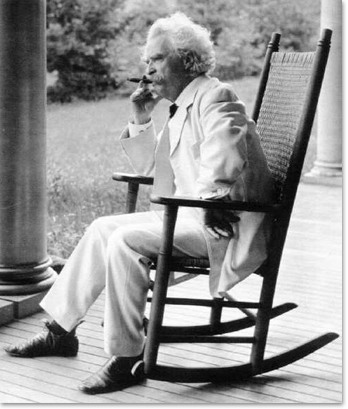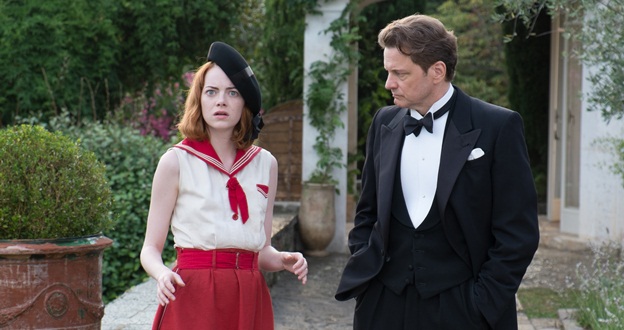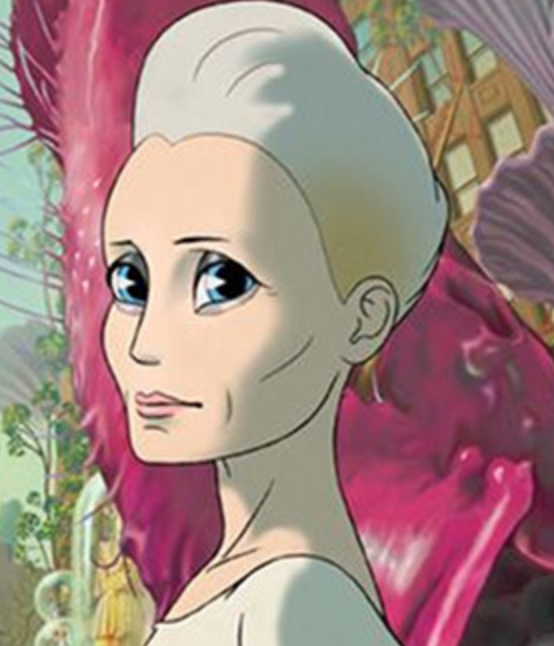The Church of the Magic Chair
 Last weekend while in the, ahem, Hamptons (they’re so tony I can scarcely type their name), I went to a bevy of amazing yardsales. Most prized among my booty was an antique wood rocking chair made by the grandfather of the man who sold it to me; when I accurately described the grandfather (who was right around us as far as I was concerned), the man—a year-rounder who worked construction—gave it to me for $10 and a hug. Such a cute person. After money changed paws, he helped me attach the chair to Sadie, my forever-on-the-blink Hyundai. I lugged it up to my third-floor Brooklyn walkup with much huffing and puffing and more than a few reservations: Ever since my apartment rehab, I’ve considered the near-emptiness of my living room to be the height of glamour. But the chair has turned out to be a great writing ally–this man’s grandpa may have harbored literary fancies of his own–and as I type in it, permakitten Gracie nestles beneath, purring to herself and squeaking in happy fright whenever I rock unexpectedly. I suspect this Grandpa ghost is blocking whatever other energy was giving her agita, and I’m glad for him, as well as for her. My Summer of Reckoning sure has produced some treasures.
Last weekend while in the, ahem, Hamptons (they’re so tony I can scarcely type their name), I went to a bevy of amazing yardsales. Most prized among my booty was an antique wood rocking chair made by the grandfather of the man who sold it to me; when I accurately described the grandfather (who was right around us as far as I was concerned), the man—a year-rounder who worked construction—gave it to me for $10 and a hug. Such a cute person. After money changed paws, he helped me attach the chair to Sadie, my forever-on-the-blink Hyundai. I lugged it up to my third-floor Brooklyn walkup with much huffing and puffing and more than a few reservations: Ever since my apartment rehab, I’ve considered the near-emptiness of my living room to be the height of glamour. But the chair has turned out to be a great writing ally–this man’s grandpa may have harbored literary fancies of his own–and as I type in it, permakitten Gracie nestles beneath, purring to herself and squeaking in happy fright whenever I rock unexpectedly. I suspect this Grandpa ghost is blocking whatever other energy was giving her agita, and I’m glad for him, as well as for her. My Summer of Reckoning sure has produced some treasures.
The Age Gap Is Getting Old
 Though not terrible by any stretch of the imagination, Magic in the Moonlight is one of Woody Allen’s slightest efforts in quite a while. Its central star is the French countryside where it is based, with a distant second played by Colin Firth as an ill-tempered illusionist and Emma Stone as a medium who bewitches him with her bright blue gaze and seemingly legitimate psychic abilities. The dance between a depressive rationalism and magical thinking is a familiar Allen trope, and he brings nothing new to it here. What fun there is to be found stems from Firth sinking his fangs into another Mr. Darcy-like role as well as an unusually demure Stone; early reviews have largely amounted to the critical equivalent of a suppressed yawn.
Though not terrible by any stretch of the imagination, Magic in the Moonlight is one of Woody Allen’s slightest efforts in quite a while. Its central star is the French countryside where it is based, with a distant second played by Colin Firth as an ill-tempered illusionist and Emma Stone as a medium who bewitches him with her bright blue gaze and seemingly legitimate psychic abilities. The dance between a depressive rationalism and magical thinking is a familiar Allen trope, and he brings nothing new to it here. What fun there is to be found stems from Firth sinking his fangs into another Mr. Darcy-like role as well as an unusually demure Stone; early reviews have largely amounted to the critical equivalent of a suppressed yawn.
Certainly the twenty-eight-year age gap between Firth and Stone has caused nary a stir. And that’s really something given that their age difference is actually two years greater than the one between Woody Allen and Mariel Hemingway, whose on-screen romance in 1979’s Manhattan caused such a flap. (Of course, Stone and Firth’s age difference still pales in comparison to the thirty-eight-year age gap between Allen and his real-life wife, Soon-Yi Previn, the adopted daughter of his former girlfriend Mia Farrow.) So what does it mean? Continue Reading →
The Uncanny Fog of ‘The Congress’
 Hodge-podge, thy name is The Congress. Ostensibly about an iteration of Robin Wright played by Robin Wright who sells the rights to her on-screen persona to a big Hollywood studio, it is not really about that at all. It is part animation, part live-action; part adaptation of Stanisław Lem’s 1971 sci-fi novel The Futurological Congress, part anti-Hollywood meta-movie; part electric Kool-Aid acid trip, part anti-commercialist treatise. And if all that sounds a bit much, try actually sitting through this two hour-plus film. The funny thing is: I heartily recommend the experience.
Hodge-podge, thy name is The Congress. Ostensibly about an iteration of Robin Wright played by Robin Wright who sells the rights to her on-screen persona to a big Hollywood studio, it is not really about that at all. It is part animation, part live-action; part adaptation of Stanisław Lem’s 1971 sci-fi novel The Futurological Congress, part anti-Hollywood meta-movie; part electric Kool-Aid acid trip, part anti-commercialist treatise. And if all that sounds a bit much, try actually sitting through this two hour-plus film. The funny thing is: I heartily recommend the experience.
It might sweeten the deal to know this is the brainchild of Ari Folman, the writer-director of Waltz with Bashir. A 2008 animated documentary about his experience as an Israeli infantry soldier, Bashir grounded questions about the fluidity of memory and identity with the reality of the 1982 Lebanon War, and deserved the Oscar for which it only received a nomination. The Congress may take Folman’s big-picture interrogations much (much!) further afield but he anchors its fancies with the same sort of real-world stakes. In this case, those stakes are an actual female body, which, as it turns out, cuts through all kinds of blips in the time-space continuum. In this capacity, Robin Wright, who channeled an old-soulfulness even as a budding starlet, proves the perfect muse. But she is also far more than a muse, and it is this dance between her subjectivity and her objectivity – not to mention her objectification – that runs as the common thread through this new cinematic organism that both heralds and laments a new era in filmmaking. Continue Reading →
